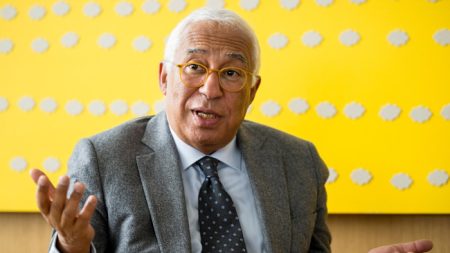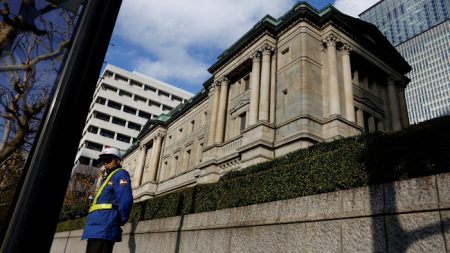At the first global gathering of Lazard managing directors last December, after Peter Orszag had taken the helm of the investment banking boutique, the former economist invited a guest speaker to give a pep talk. His choice rankled many in the crowd.
Orszag, who took over from longtime chief executive Ken Jacobs in October, welcomed Ralph Schlosstein, the retired head of Evercore. Evercore, a boutique bank in business for less than three decades, had eclipsed the 176-year-old Lazard in revenue, valuation — and increasingly, cachet.
Schlosstein and Orszag, a cabinet member in the Obama administration, are friends and big players in Democratic party politics. But the presence of an arch-rival at a strategy session seemed odd to those congregated.
“It was a little awkward,” said one Lazard banker. “What is Ralph going to tell us that helps us?”
To his critics within the firm, it was the latest evidence that Orszag — who came to the firm in 2016 with only five years’ banking experience — was a high-finance newbie who simply did not appreciate the vagaries of the business.
“Peter looks the part,” said one longtime Lazard managing director, who added that Orszag was most at ease talking to clients about China or the chip war. “But he’s not a deal guy when he’s talking.”
Yet to Orszag and his backers, presenting an ascendant competitor was exactly the kind of jolt Lazard bankers needed after years of middling results.
“A thousand bankers can bring me a thousand deals . . . there is very little differentiation,” said Dan Schulman, the former PayPal chief executive whom Orszag recently recruited to Lazard’s board of directors and who is an Orszag fan: “It’s the people who can challenge me on how I think about the world who are unique.”
Orszag’s task is twofold. To the outside world, he must revitalise a faded franchise facing heightened competition and evolving client demands — and make Lazard’s long-standing, high-minded tagline, “la haute banque d’affaires vis-à-vis the world”, resonate once more.
And inside the bank, he just has to get Lazard’s notoriously jaded troops on board.
If he can pull it off, the reward will be considerable. Under a board-devised pay plan, stock worth at least $86mn will vest on top of Orszag’s standard annual salary and bonus if Lazard’s share price climbs from the low $30s at his appointment to $69 by 2030 — equivalent to more than $3bn in aggregate equity value creation.
But several Lazard bankers — as well as some shareholders, a third of whom voted against the plan — believe it is unnecessarily generous at a time of redundancies and austerity at the firm.
Many are equally suspicious of Orszag’s goal of doubling revenue by 2030, a number that requires compound annual growth of 10 per cent. It took Lazard 12 years to double its group revenue — including a large asset management division — from its 2009 low.
Orszag told the Financial Times: “We had the potential to raise our ambitions. The accountability starts with me — people needed to see that I am invested in our success.”
The accountability envisaged by his strategic plan — “Lazard 2030” — is also controversial with the firm’s bankers. One plank calls for managing directors to collectively bring in an average of $8.5mn each in annual fees by next year, with those bankers now explicitly in line to receive at least a fifth of those fees as bonuses.
At the same time that Orszag is trying to enforce productivity within the ranks, he is simultaneously urging bankers to become more “collegial”, attempting to promote more teamwork among Lazard bankers who have been lone wolves since the days of André Meyer and Felix Rohatyn, decades earlier.
The balancing act is tricky. At the December meeting, veteran Lazard banker Gerry Rosenfeld questioned in front of the group how culture would be affected by a regime that placed enhanced focus on individual productivity, a tension that Orszag has acknowledged.
“Gerry went nuts . . . [saying], ‘you can’t talk about collegiality if we are gonna talk about attributable revenue’,” one person said of Rosenfeld’s comments at the meeting.
“I did not go nuts. I appreciate Peter’s openness to debate and how he incorporates feedback,” Rosenfeld said in a statement provided to the FT.
Another recently departed Lazard banker told the FT about a prominent banker who, he said, had snatched credit for a fee from him, an act he described as “unconscionable”. Orszag insists the formulaic pay equation will be adjusted for good and bad behaviour.
UBS analyst Brennan Hawken said he did not view Orszag’s goals as “really a modelling tool for analysts, but rather a call to action for the employees of Lazard and an opportunity to ‘rally the troops’ behind a firm where the senior members of the staff are probably pretty frustrated with the stock”.
There are early signs of success — particularly after Jacobs and Orszag came within a hair’s breadth of selling the firm to Abu Dhabi’s ADQ last year.
In the two quarters since Orszag took over, Lazard generated almost $1bn in deal fees, far more than previous quarters and beating analysts’ expectations. At this pace, the bank is on track to meet and exceed its $8.5mn per managing director target as early as this year. Lazard’s shares are up more than 50 per cent since November.
Insiders also wonder if Orszag, a career economist until 15 years ago, is ultimately angling for the role of Treasury secretary in a future Democratic presidential administration.
For Orszag’s allies, this misunderstands what the celebrity chief executive can bring to the bank.
“We have plenty of bankers focused on individual transactions. The CEO of Lazard should focus on setting our strategy, building our stature and connectivity, and leading our people,” said Alexandra Soto, Lazard’s chief operating officer and a longtime banker in Lazard’s London office.
Soto views Orszag more like a throwback to the earlier chief executive and Lazard-family descendant, Michel David-Weill: equally an impeccably connected networker and internal peacekeeper.
David-Weill was ultimately unseated by the M&A grandmaster Bruce Wasserstein, however, who forcefully united warring families and factions across the firm’s three primary offices in New York, London and Paris. In 2010 upon his sudden death, Wasserstein was succeeded by another acclaimed deal-doer, Jacobs.
It was Jacobs himself who identified Orszag as a potential successor.
“It’s been a very smooth transition, maybe for the first time ever,” said Soto.
Orszag has used his star power to become an indefatigable brand ambassador for Lazard. He is a ubiquitous presence on business television and at wonky think-tank symposia, often talking about macroeconomic policy.
And last month, he attended a state dinner at the White House honouring the president of Kenya.

Orszag has also begun hosting a “salon” series where luminaries are invited to his home or the Lazard office in the evenings to discuss the events of the moment: it is an idea cribbed from Blair Effron, co-founder of the ultra-successful Centerview Partners, who has used such client soirées to great effect.
Orszag’s Washington/New York stature is seen as enough to get important people into a room and eventually convert them into fee-paying clients.
Lazard is also converting some of its dedicated conference room floor 64 stories above 30 Rockefeller Plaza into a fine dining space where all the firm’s rainmakers can woo the glitterati and seeks to do just that.
The 64th floor at 30 Rockefeller has, however, become its own flashpoint.
Orszag has taken a large personal office on that level even as every other Lazard banker sits on the floors below.
“Regardless of where I am in the world, or what floor I’m on in our building, my goal is to promote our firm and our people,” Orszag said.
The space is suited for visiting dignitaries, as well as asset management employees not permitted on banking floors. But the chasm has not gone unnoticed.
“Having him sit up there gives the impression that he is, literally and figuratively, above us,” said one managing director.
Read the full article here














